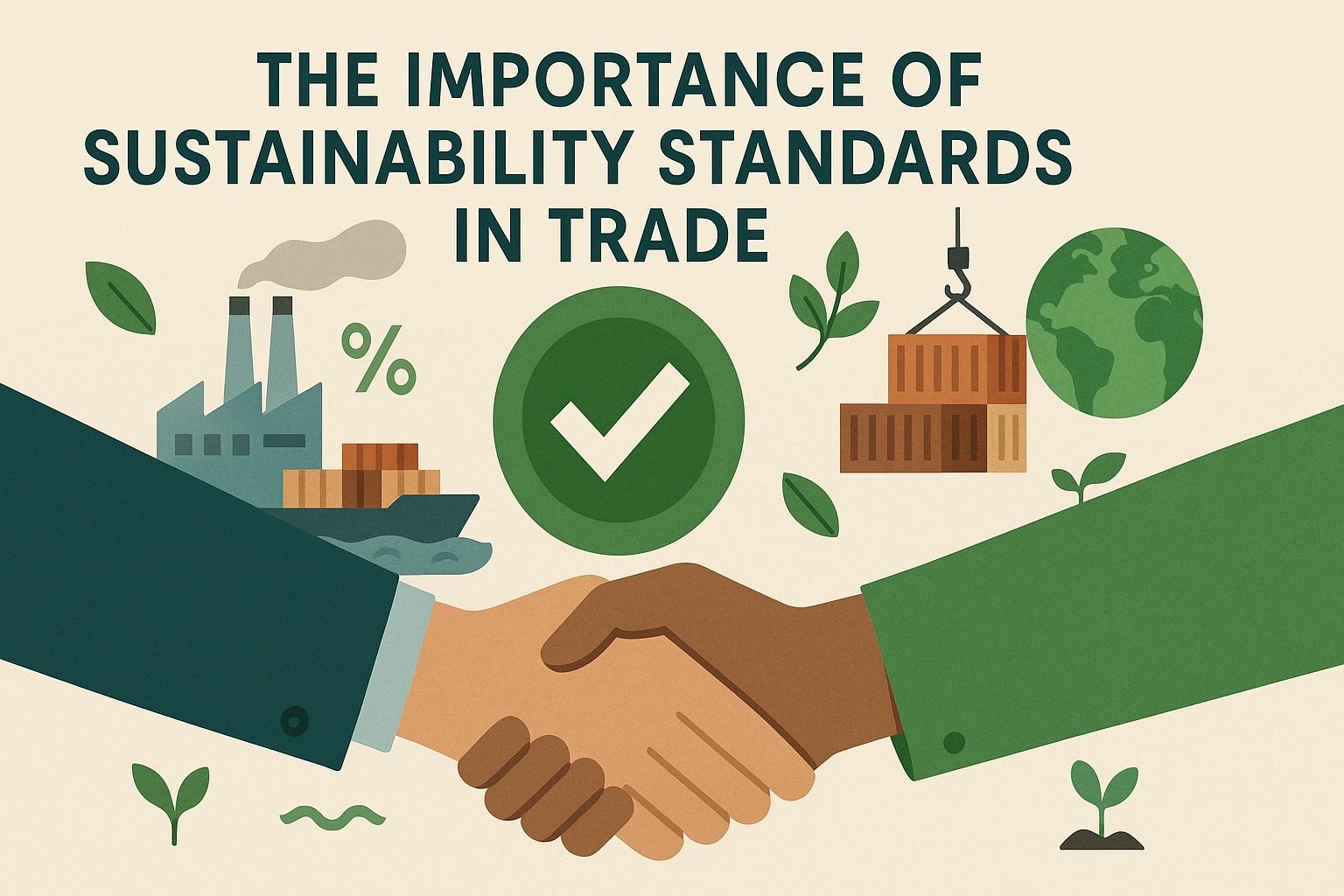The Role of Sustainability Standards in Modern Trade
In recent years, the awareness and importance of sustainability standards in global trade have significantly increased. These standards are necessary as they aim to ensure environmentally friendly practices, social equity, and economic viability within trade processes. Their adoption not only benefits the planet but also provides competitive advantages to businesses that adhere to them.
Understanding Sustainability Standards
Sustainability standards are guidelines and criteria designed to ensure that products and services are produced, procured, and consumed in ways that are environmentally sound, socially equitable, and economically viable. These standards often address multiple aspects of production and trade, including resource efficiency, waste management, labor rights, and humane working conditions. Some prominent examples of sustainability standards include Fair Trade, Organic, and Rainforest Alliance certifications.
These standards are developed by various international organizations, industry groups, and governments that aim to create a more sustainable and just form of commerce. They not only set the minimum requirements but often go beyond legal obligations to enhance the quality of life and the environment.
Economic Impact of Sustainability Standards
Adopting sustainability standards can have a positive economic impact on businesses. Companies that embrace these standards often see improvements in efficiency and reductions in waste, leading to cost savings. Moreover, a growing number of consumers are willing to pay a premium for sustainable products, which can enhance a company’s revenue and market position. Businesses that adopt such standards may also find improved access to markets where sustainability is a key procurement criterion.
The economic benefits extend beyond just increased revenue and cost savings. Businesses that are early adopters of sustainability standards often gain a first-mover advantage, allowing them to establish a strong brand identity in the marketplace. Investors are also increasingly focusing on sustainable business practices, and thus adherence to sustainability standards can attract investment by improving a company’s market reputation and reducing investment risks.
Further, companies that integrate sustainability into their operations are often better equipped to anticipate and respond to regulatory changes. As governments worldwide tighten environmental and social regulations, being ahead of the curve gives businesses a strategic advantage.
Environmental Benefits
Compliance with sustainability standards promotes the conservation of resources, reducing the environmental impact of production and trade activities. These standards encourage the use of renewable resources, minimize the use of harmful chemicals, and promote biodiversity. By adhering to these standards, businesses contribute positively to environmental preservation and help mitigate issues such as climate change and ecological degradation.
For instance, companies that adopt sustainability standards often implement efficient energy use policies, invest in renewable energy sources, and plan for long-term resource management. These efforts collectively lead to reduced carbon footprints and significant contributions to combating environmental issues.
Moreover, sustainability standards stimulate innovation in environmental technologies and practices. The challenges involved in meeting sustainability criteria can drive research and development departments to create environmentally friendly processes and products, enhancing overall industry standards.
Social Implications
From a social perspective, sustainability standards set frameworks that promote fair labor practices and community well-being. Companies that align with these standards commit to providing fair wages, safe working conditions, and respecting workers’ rights. This adherence is crucial in creating more equitable supply chains and improving the lives of workers and their communities globally.
The social benefits can also boost employee morale and productivity. When workers feel valued and operate in safe environments, their efficiency and commitment to company goals typically increase. This also helps in attracting and retaining talent, which is essential for long-term business success.
Companies are further motivated to undertake social responsibility initiatives in the communities where they operate. Efforts can include community outreach, supporting local education and healthcare, and contributing to local economic development. These initiatives not only build community trust and improve the company’s public image but also create a sustainable business ecosystem.
As the demand for transparency and accountability rises, companies complying with sustainability standards gain trust among their stakeholders, including consumers, investors, and regulatory bodies. They are seen as leaders in corporate social responsibility, setting examples for others to follow.
For further details on how businesses can implement these standards, visit ISO for guidelines and resources on certifying sustainable practices.
In conclusion, sustainability standards in trade are vital for fostering an equitable, viable, and environmentally conscious global trading system. While challenges in implementation exist, the benefits in economic, environmental, and social domains make the pursuit of these standards a strategic priority for businesses and governments alike. They provide a framework for addressing some of the most pressing global issues today, ensuring that trade can be both a driver of development and a steward of the environment and social equity.
As we move forward, the importance of integrating sustainability into every aspect of trade cannot be overstated. It demands collective efforts across industries and nations but promises a more resilient and sustainable future for all stakeholders involved. Adherence to sustainability standards is not just an ethical choice; it is becoming a defining factor for success in the modern business landscape.

